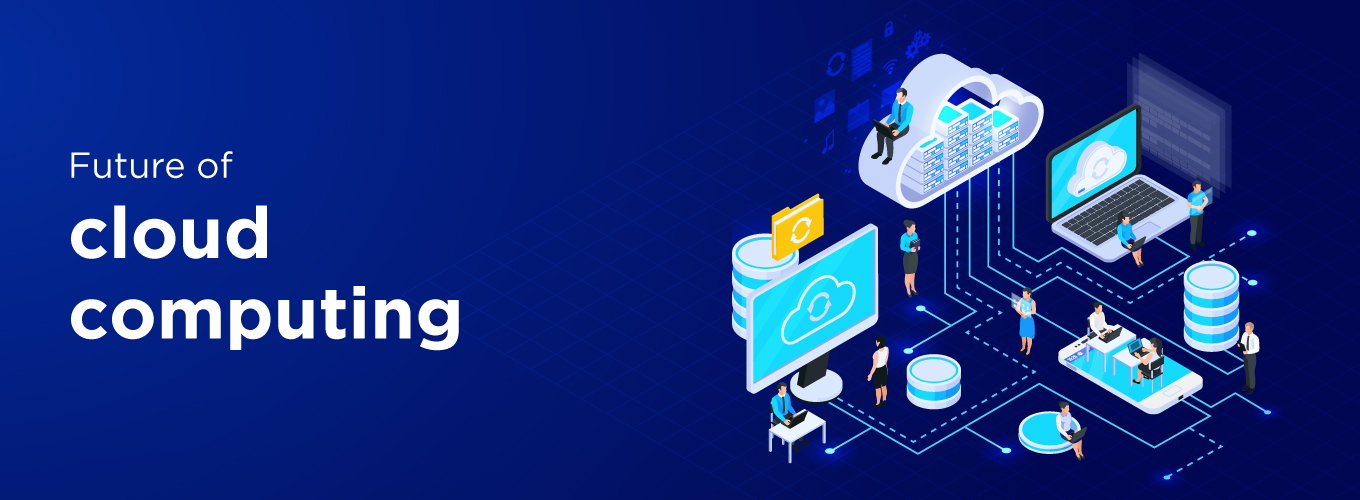The Future of cloud computing
Leveraging the fusion of physical computing with cloud-based products and services will dictate the future of cloud computing. This model will be a hybrid one. It will help optimize value-added IT solutions. This model is secure, reliable and scalable. Importantly, it is flexible and can be further adapted as the space evolves and grows.
Table of Contents
Cloud services have grown
According to Gartner, public cloud services grew from US $273 billion in 2020 to US $334.3 billion in 2021. With acceptance of and adaptability to cloud services increasing over the past few years, many businesses have thrived using the cloud-based model. From software development to remote services to infrastructure, cloud-based solutions have made businesses across industry segments more efficient.
Cloud computing was the biggest asset that industry leaned on, and leveraged, during the pandemic. It has become the key business tool of the current decade.
Also Read: How To Become A Cloud Engineer
Why cloud computing is integral to business growth
There are several factors why this is so. Here’s a quick review of some of them.
Edge computing
Millions of transactions are happening over the internet at any moment. Most businesses rely on using the data from these transactions to plan their strategies. This has an effect on where data centers are placed and how they operate. Businesses prefer that their data centers are located closer to where the data is being generated. This is called edge computing. And this space is growing.
Gartner reports that close to six billion internet devices rely on edge computing. This includes the top IT majors like IBM, Dell and Intel. It is through using edge computing that these companies are processing data pools.
Multi-cloud computing
Multi-cloud computing is the business of companies using several cloud service providers to source public and private cloud services. These multi-cloud service providers apportion the workload and the workflow across different cloud platforms. For instance, very sensitive data is stored on private cloud platforms. And less confidential and general data are hosted on public cloud platforms.
Accenture estimates that close to 95 % of businesses operate on a multi-cloud strategy. Using this strategy offers businesses both flexibility and heightened data security. A multi-cloud option offers clients protection from possible data loss when systems crash. A sound multi-cloud architecture offers a huge return on investment with the value that it adds to the business.
Heightened security
The cloud storage model is driven by machine learning and artificial intelligence (AI). So it intrinsically offers an advanced security apparatus. This protects against data theft and loss. Machine learning analyzes each transaction and reviews multiple data points. AI reviews transactions for timing and functionality. Machine learning and AI, therefore, make cloud computing safe, secure and reliable. It is believed that 96 % of cloud-based failure events are because of mistakes made by customers rather than being caused by any system-based issues.
Options for expanded data storage
Price and speed are two key influencers for choosing cloud storage options. With increased demand, expanded data storage requirements are being sought after by customers. Therefore, data storage capacities at data centers must grow in the future. Owing to competition, data centers will offer additional storage at lower prices. And they will technologically improve their offerings to provide high-speed cloud services. Tighter security mechanisms will also help customers choose one provider over another.
Serverless cloud computing
The new term in the cloud computing space is PaaS. It means offering the ‘Platform as a Service’. It is a comprehensive cloud environment that offers all the tools and services that developers need to design, build, run and manage applications. This includes the servers, operating systems, networks, storage, middleware and other relevant tools.
A robust serverless cloud computing architecture allows a business to manage a host of cloud-based applications and services without having to own or manage servers. This means being free from having to build and manage the physical server infrastructure.
Serverless is the way forward. This will make business agile and scalable. The price advantage offered by various service providers in the serverless space make it very competitive.
In the next six years, serverless computing is expected to grow by 27 %.
Artificial intelligence
AI is a competitive advantage for business. Reports suggest that the annual market value of AI will be US $89 billion by 2025. This means companies that have not embraced AI will begin to be left behind in the global marketplace.
With AI, data storage becomes more efficient and workflow becomes seamless. Cloud computing will thrive only with AI-based tools and architecture. This is the future. There are no two ways about this. What will increase the dependence on AI in cloud computing is that the AI features are scalable in cloud computing with lower investments than in traditional models.
Containerization
The future of cloud computing is containerization. Currently, 75% of the businesses rely on containerization for data storage. Containers enable faster and secure data storage.
Kubernetes, or K8s, is an open-source system that helps automate deployment, scaling and management of containerized applications. Kubernetes helps standardize the container approach to data storage for a business.
Also Read: Cloud Engineers On Cloud Nine!
In conclusion
More businesses are expected to embrace cloud-based products and services. This will give them the advantage of speed, heightened data security and lower infrastructure costs. Therefore, the future of cloud computing is very exciting.
Ready to start your job hunt? Check out the Xpheno Job Board today!









